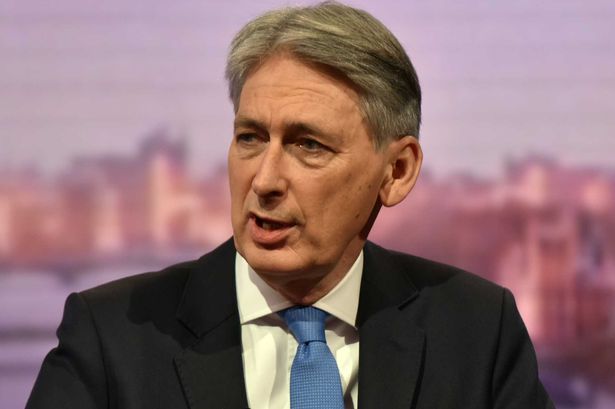The food and farming industry has given a muted response to Chancellor Philip Hammond’s budget today, with concerns raised about the lack of clarity for British food production post-Brexit, and little reference to the needs of rural communities.
Tim Price, Rural Affairs Specialist at NFU Mutual, said: “At first glance, there was not a lot for farmers to get excited about – but a few measures which will ease tax bills – and a huge relief that the Chancellor avoided increases in duty on petrol and diesel which would have hit country people very hard.
“Those running small farms and rural businesses will heave a sigh of relief that they won‘t be faced with expensive accounting admin as the Chancellor has decided to keep the threshold for VAT registration at the current £85,000.”
“There was good news for self-employed farmers and all those working as employees that the Chancellor has stuck to the Tory’s promise to keep increasing personal tax allowances. They will be going up to £11,850 for basic rate taxpayers and £46,350 – which means a few hundred pounds more out of the taxman’s grasp.
“No increase in fuel duty rates for petrol or diesel is a huge relief for farmer and their families who currently have no alternative to using these fuels to work the land and get about in the countryside.
“The Chancellor’s extension of Business Rate relief for small pubs will be a help to pubs serving remote rural communities and provide a watering hole for farmers and other locals while no increase in duty on most cider, wines and spirits is a bit of Christmas cheer.
“Confirmation of the Government’s plans to facilitate building of 300,000 new homes by the mid-2020s by the Chancellor could mean great opportunities for farmers in some locations to sell land for building to raise funds for investment elsewhere on their farms – or to diversify and provide a sustainable future for their farms and also local jobs.”
The Food & Drink Federation sounded a cautiously optimistic tone. FDF Director General Ian Wright said: “We welcome the focus on investment in skills, infrastructure and R&D in the Chancellor’s Budget statement today.
“If we are to unlock the productivity potential within UK food and drink manufacturing then boosting skills, innovation and exports will be critical. We hope to see an acknowledgement of the progress of our work to support these priorities in next week’s Industrial Strategy White Paper.”
The NFU’s president responded by calling on departments across Government to prioritise the need for the nation’s ability to produce food and care for the countryside.
“We are disappointed to see no meaningful measures to help prepare farming businesses for life outside the EU in today’s Budget statement,” said NFU President Meurig Raymond. “With most of the emphasis on urban growth, there is little in the way of measures to benefit rural communities.
“We do, however, appreciate that this is a fairly stable Budget that does not appear to have any adverse impact on our industry.
“In these times of uncertainty, and ahead of significant upheaval, we need to have sustainable and viable businesses producing the nation’s food. Our calls to create the right environment for investing in farming, to mitigate risks, are yet to be answered.
“We will look with interest to next week’s Industrial Strategy launch and hope it will include specific measures to support the agri-food sector.
The CLA which represents landowners, farmers and rural business across England and Wales who together manage more than 10 million acres of rural land, criticised the urban focus of Hammond’s budget, especially in relation to housing policy.
CLA President Tim Breitmeyer said: “We need more homes of all types across the whole country. It is worrying for a Chancellor to be so explicit in describing a policy so completely focused on urban areas. The shortage of homes in rural communities is no less acute than in our towns and cities. Rural landowners stand ready and able to play their part in delivering the homes people need. Another budget has gone by without making simple changes to tax and planning policy that could make a big difference.”
On business rates, Breitmeyer was also critical. “Another year sees yet another inadequate partial intervention on business rates. Businesses struggling to absorb dramatic rates bill increases imposed this April, hoped for a complete freeze in rates increases planned for next year. Instead, the shift from an increase linked to the retail price index (4%) to the consumer price index (2.8%) is merely doing the right thing, but almost a decade too late.”
And on connectivity, he was scathing. “Rural people will raise a wry smile at the promise of next generation 5G mobile coverage as the much of countryside struggles to get even basic coverage. 5G investment must not come at the cost of delivering the well overdue connections that rural areas need.”




